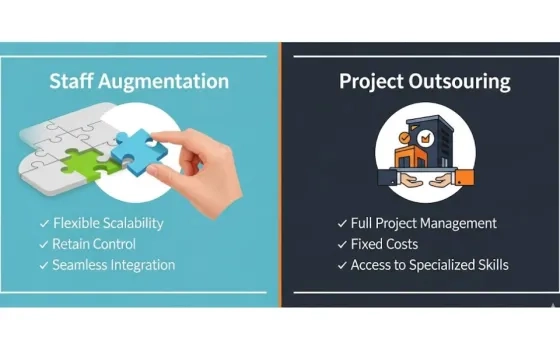What is DevOps?
Almost all organizations use the software as a critical part of their product or service delivery. To ensure the successful delivery of these products or services, the software development lifecycle must be efficiently managed. This is where DevOps comes in. DevOps has become an essential part of the software development lifecycle, helping businesses streamline their processes and maximize the value of their work. In this article, we will explore the role of DevOps in the software development lifecycle, from planning to deployment and monitoring. We will analyze the benefits of DevOps and how it can help organizations increase efficiency, improve collaboration, and reduce time to market.
Benefits of DevOps
DevOps has become an increasingly popular approach to software development, allowing teams to be more agile and move projects forward at a faster rate. One of the key benefits of DevOps is its ability to reduce the time-to-market of products. By automating development processes such as testing and deployment, developers are able to dramatically reduce their development cycle times. In addition, DevOps allows teams to quickly identify and respond to bugs and issues, leading to improved customer satisfaction. Furthermore, DevOps provides the ability to quickly deploy and roll back changes, meaning teams can develop and deploy faster while still maintaining a high level of quality. Finally, DevOps promotes collaboration between developers and operations staff, leading to more efficient operations and improved communication.
Increased Efficiency
DevOps is a crucial element of software development that strives to increase efficiency by allowing for continuous integration, delivery and monitoring of software. By utilizing a strong DevOps strategy, teams can reduce the time for software changes, defects and feature releases, enabling them to be more agile and remain competitive in the market of software. DevOps also enables teams to respond more quickly to customer feedback related to their software, and identify problems in the software codebase more quickly, ensuring a high-quality end product. This increased efficiency enables teams to accelerate software development cycles, while also reducing costs, resulting in a more profitable and successful software development process. Developing a comprehensive DevOps strategy creates an environment in which teams can quickly and efficiently develop and deploy software for software without sacrificing quality.
Improved Collaboration
The implementation of DevOps practices has resulted in improved collaboration between development and operations teams. Working collaboratively with each other, teams are able to identify and address problems quickly, as well as increase process efficiency and software quality. Communication between teams is also improved since both teams are involved in the entire development process from start to finish, enhancing the understanding of each other’s roles and responsibilities. DevOps also promotes cross-functional skills, allowing teams to easily switch tasks in order to complete projects as swiftly as possible. Not only does this improved collaboration lead to faster delivery of products and services, but it also encourages innovation, which is essential for staying ahead in the rapidly changing world of technology.
Reduced Time to Market
Implementing DevOps in the software development lifecycle has the potential to dramatically reduce time to market. Through the use of automation, streamlined processes, and the development of cross-functional collaboration and communication, DevOps enables the creation, testing, and deployment of new software with much greater speed and agility. This enables faster releases, which means that businesses are better able to respond to customer needs and stay ahead of the competition. With DevOps, software teams can focus more on developing innovative solutions rather than wasting time on manual processes, allowing them to accelerate time to market.
DevOps and the Software Development Lifecycle
DevOps is a key role in the software development lifecycle, as it is the only factor that links the process of code development and delivery. DevOps mediate between the development and operations phases of the software development lifecycle, making sure that code is delivered quickly and without any bugs or errors. DevOps teams use tools such as continuous integration, automated testing, and automated deployment to ensure that code is deployed as quickly and reliably as possible. DevOps is an essential part of the software development lifecycle, ensuring that the software is delivered with high quality, on time, and in a cost-effective manner.
Planning
When planning a software project, implementing DevOps practices is essential for ensuring development and deployment goes as smoothly as possible. Planning is key, as DevOps practices such as continuous integration and continuous delivery should be integrated into the project from the very beginning. Additionally, selecting the right DevOps tools for the project is vital for ensuring the efficient automation of various software development tasks. Lastly, creating a DevOps strategy that includes assigning roles and responsibilities to team members is essential for maintaining an efficient development process. By considering DevOps from the start of the project planning phase, organizations can reap the many benefits of DevOps throughout the software development lifecycle.
Development
In recent years, the use of DevOps has become increasingly popular in software development. DevOps is a set of practices and principles aimed at improving the collaboration between software developers and IT operations teams. DevOps promotes a culture of communication and collaboration by actively involving developers, operations teams, and other stakeholders throughout the entire software development lifecycle.
At the core of DevOps lies the idea of being able to quickly deliver software to end-users with minimal risk. Through increased collaboration, DevOps helps to make development cycles faster, reduce costs, and ensure quality. By automating parts of the development process, DevOps also helps to reduce human errors.
DevOps enables teams to quickly deploy and test applications without sacrificing quality or reliability. This helps to speed up the development process and ensures that applications are delivered on time and within budget. DevOps also facilitates continuous integration, automation, and deployment of code. This further helps to reduce risks and ensure faster deployment of software.
Overall, DevOps is an important component of the software development lifecycle. By fostering collaboration and automating parts of the process, DevOps helps to improve the speed, reliability, and quality of software development.
Testing
Testing is an essential part of the DevOps process, ensuring that the software produced is of high quality and meets the requirements of the customers. DevOps testers work in close collaboration with software developers to ensure that the software is bug-free and meets all customer specifications. DevOps testing is agnostic to technology and methodology, meaning that any combination of technologies, techniques, and tools can be used to ensure the highest quality product. Automated testing can be used for regression testing and continuous integration and delivery to ensure that software is tested against customer requirements regularly and quickly. This helps to ensure that the software is fit for purpose and ready for deployment.
Deployment
Deployment is often the final stage of the software development lifecycle (SDLC). DevOps plays an important role in making deployment safe, efficient, and successful. DevOps helps to ensure that code and configurations are tested, stored, and tracked correctly. It also enables teams to observe and evaluate production environments in real-time to inform deployments. Additionally, DevOps automates deployment processes, ensuring that deployments occur as quickly and safely as possible. By utilizing DevOps processes, organizations can ensure successful deployment and a smooth transition from software development to operations.
Monitoring
Monitoring is an essential part of the DevOps process, as it helps track the performance of applications deployed in production, identify issues early on, and ensure that the software runs smoothly. Monitoring tools provide visibility into the performance of applications by recording and visualizing data from applications, databases, and services. This helps teams identify issues and take corrective action quickly, reduce downtime, improve user experience, and maintain the stability of the system. Monitoring tools are also used to measure the performance of DevOps teams in order to improve their efficiency.
Conclusion
In conclusion, DevOps is a powerful tool for improving business operations through increased efficiency, improved collaboration and reduced time to market. It offers many advantages over traditional software development and helps streamline the entire software development lifecycle, from planning and development to testing, deployment and monitoring. Finally, DevOps emphasizes collaboration and automation in order to achieve higher-quality results, with fewer human resources. With this in mind, it is clear that DevOps is an invaluable addition to any organization’s software development process.
Source: Understanding The Role of DevOps in The Software Development Lifecycle



















